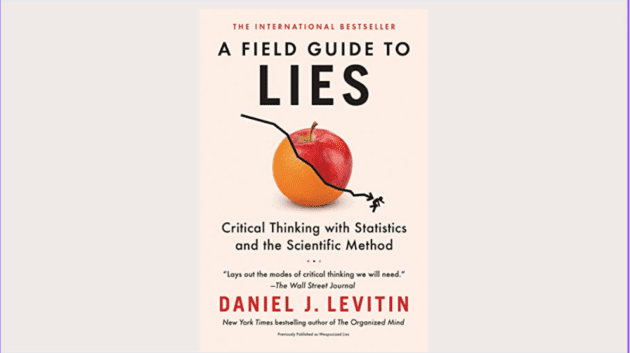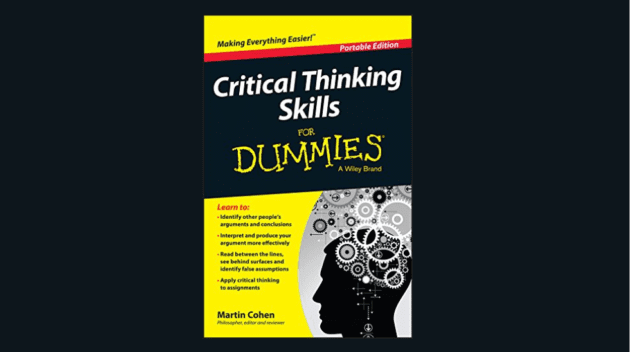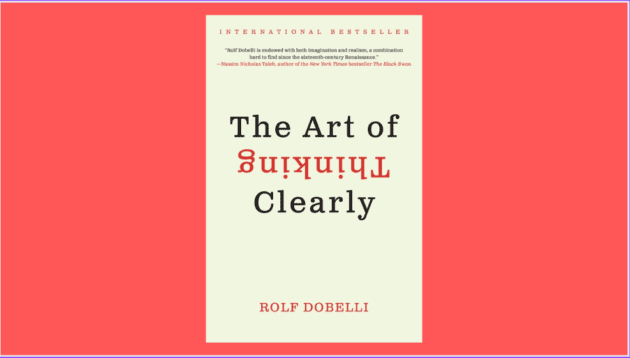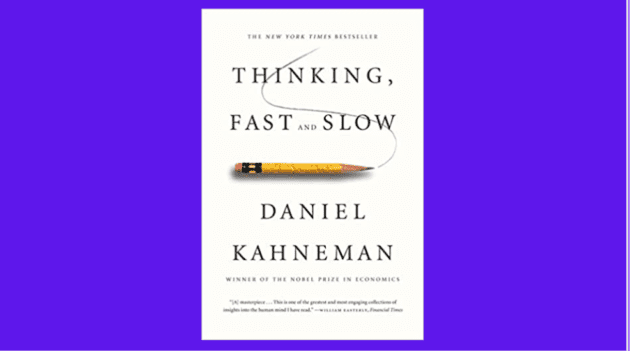Critical thinking refers to thinking objectively and removing bias from your judgment. This helps you make better decisions in your personal and professional life. One way to improve critical thinking is through reading books focused on critical and careful thinking. That’s why we’re excited to present the best critical books of thinking for students
List of Critical Thinking Books for Students
Reading books that explore critical thinking can provide valuable insights and practical techniques for enhancing these skills. Here are the best critical thinking books for students.
1. A Field Guide to Lies
This book, written by an established author, points out that when information is presented to you, don’t believe blindly. Check possibilities and use facts to separate fact from fiction and how to use science as a tool to distinguish between truth and lies.
2. Critical Thinking Skills for Dummies
Have you ever been in an argument where you couldn’t present your points well, only to realize later what points would have been more helpful? This book teaches you how to make your thoughts coherent so that you know exactly what to say. When you read this book, you will know how to manage your thinking so that your arguments come out in a more reasonable, educated, and thought-out way.
3. The Art of Thinking Clearly
This book, originally written in German, has been a best-seller. It builds upon the idea of how to make better decisions, such as how “98% fat-free” is better than “1% fat.” The Art of Thinking Clearly makes you more aware of your biases and more perceptive of the biases that creep into group decision-making.
4. Thinking Fast and Slow
This book reflects the idea that humans think in two ways: one is fast, emotional, and intuitive; the other is slower, logical, and deliberate. Using both ways clearly and properly can really boost a person’s thinking power, leading to better decision-making and critical thinking.
5. The Demon-Haunted World
This book aims to provide a scientific way of thinking clearly and skeptically. Filled with fallacies about demons, witchcraft, aliens, etc., the author comes up with a comical theory to reflect on your thoughts more skeptically and critically and how not to believe everything you hear.
6. Fact Versus Fiction
Fake news creates fear, discontent, anger, and confusion. It polarizes people, leading to rash and volatile decisions. This book is here to help you make more informed decisions, distinguish between facts and fiction, and decipher fake news.
Conclusion
In conclusion, these best critical thinking books for students offer valuable insights, strategies, and practical exercises to enhance critical thinking abilities. By engaging with these books, students can develop the skills necessary to navigate the complexities of the modern world with confidence and make well-informed decisions.
FAQ’S
Reading books exposes students to different perspectives, challenges assumptions, and encourages analytical thinking, all of which contribute to the development of critical thinking skills.
Absolutely! Critical thinking is a skill that can be learned and honed through practice, exposure to different ideas, and the application of specific thinking techniques.
Absolutely! Critical thinking skills are valuable in various aspects of life, including decision-making, problem-solving, and evaluating information in both personal and professional settings.







